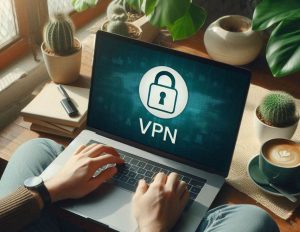 VPNs are essential for safeguarding online privacy, but their use brings important political and legal challenges that need to be addressed.
VPNs are essential for safeguarding online privacy, but their use brings important political and legal challenges that need to be addressed.
VPNs are tools designed to enhance online privacy by masking users’ IP addresses and encrypting their internet traffic. This encryption helps to protect sensitive information from hackers, advertisers, and even government surveillance. The best VPNs offer individuals a shield against invasive data collection practices and provide a sense of security when navigating the web.
Privacy Concerns
Privacy is a fundamental right in many democratic societies. VPNs enable users to maintain their anonymity and protect their personal data from being exposed. This is especially important in an era where personal information is a valuable commodity. VPNs provide a layer of security that can prevent data breaches and misuse of private information.
- Data Encryption: VPNs encrypt data, making it harder for third parties to access personal information.
- IP Masking: By masking IP addresses, VPNs prevent websites and advertisers from tracking users’ online activities.
The use of VPNs for privacy protection is not without controversy. Governments and other entities often view this privacy as a potential threat to national security and public order. This leads to a complex interplay between protecting individual rights and maintaining state control.
Surveillance and National Security
Governments around the world are increasingly concerned about surveillance and national security. Surveillance can be used to monitor activities, prevent criminal activities, and ensure public safety. However, this can come at the cost of individual privacy.
- Security Measures: Governments argue that surveillance is necessary to prevent terrorism and other criminal activities.
- Data Collection: Surveillance can involve extensive data collection, which some argue is essential for national security.
The challenge arises when surveillance measures conflict with privacy rights. For instance, while governments may use surveillance to protect citizens, excessive monitoring can infringe on personal freedoms. VPNs become a point of contention in this debate, as they can obstruct government efforts to track and monitor online activities.
Legal Challenges
The legal landscape surrounding VPN use varies widely across different countries. In some regions, VPNs are openly used and legally protected, while in others, their use is restricted or even banned.
- Legal Protections: In many democratic countries, VPN use is protected under privacy laws and regulations.
- Restrictions and Bans: In authoritarian regimes, VPNs may be restricted or banned to control and monitor online activities.
The legal status of VPNs reflects broader societal values regarding privacy and surveillance. In places with strong privacy protections, VPNs are seen as essential tools for safeguarding individual rights. In contrast, in countries where state control is prioritized, VPN use may be restricted to maintain surveillance capabilities.
Political Implications
The political implications of VPN use are profound. VPNs can influence political activism and dissent by allowing individuals to communicate securely and access information without fear of retribution.
- Political Activism: VPNs enable activists to organize and express dissenting views securely.
- Access to Information: VPNs provide access to information that may be restricted or censored in certain countries.
The ability of VPNs to circumvent censorship and surveillance highlights the tension between state control and individual freedoms. Governments may view VPNs as tools that undermine their authority, leading to policies and regulations designed to limit their use.
Balancing Privacy and Security
The central issue in the privacy vs. surveillance debate is finding a balance between individual privacy and national security. VPNs represent one side of this balance, advocating for greater privacy protections. On the other hand, surveillance aims to ensure security and public order.
- Privacy Protections: VPNs advocate for stronger privacy measures, arguing that individuals have a right to control their personal information.
- Security Concerns: Surveillance advocates argue that security measures are necessary to prevent threats and ensure safety.
Finding a balance requires careful consideration of both privacy and security concerns. Policymakers must weigh the benefits of privacy protections against the need for surveillance and control.
The debate over privacy versus surveillance is a critical issue in the digital age. Virtual Private Networks (VPNs) play a significant role in this discourse, highlighting the challenges and complexities of balancing individual privacy with national security. Understanding these issues is essential for navigating the evolving landscape of digital rights and responsibilities. As technology continues to advance, ongoing discussions and legal considerations will shape the future of privacy and surveillance.




